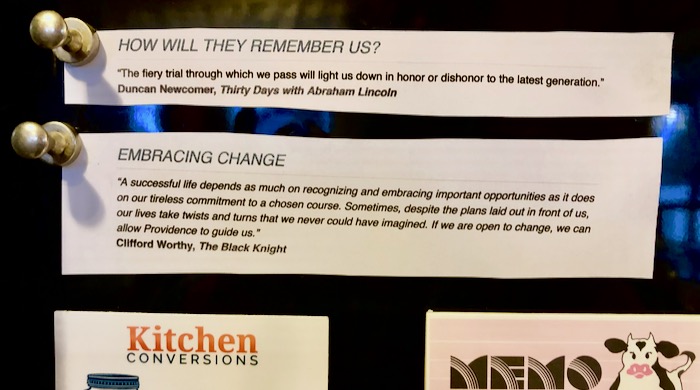
QUOTES ON OUR REFRIGERATOR DOOR: These quotes were printed from this column using the “Print” icon at the bottom of the article, which can be edited to remove any type you don’t want. And, we encourage you to create your own quotes from your own sources! Send us your favorite quotes at [email protected]
.
By MARTIN DAVIS
and DAVID CRUMM

Here’s one of many versions of this social-media meme. The wording varies on these memes, such as “shed” rather than “cried.” Other versions add responses, including: “Damn, bro, that’s true!” Many change the background imagery. Some extend the idea, for example: “Cry. Forgive. Learn. Move on. Let your tears water the seeds of your future happiness.”
There’s a meme floating around Facebook these days that reads: “May the tears you cried in 2019 water the seeds of 2020.”
It’s fascinating how a simple expression can put a positive turn on our lives. The internet hardly invented memes, however. Simple expressions have given people hope at critical junctures throughout history. And these have long been produced through books.
As this new decade dawns, we are inviting our readers to help us share hopeful lines from books that just might change someone’s day. We are reminded that our friend Benjamin Pratt describes this practice in his book Guide for Caregivers in a chapter called Carrying Words With You. (And right there is another helpful tip: Millions of Americans are caregivers now. If you’re among them, click on that title-link to visit Amazon and pick up a copy of Ben’s very helpful book, guaranteed to brighten your new year.)
As Ben describes this process of finding, saving and sharing inspiring lines:
Here’s a practical tip that many have used over the centuries: choose two or three phrases and carry them with you! Of course, this is the same idea embodied in the prayer beads that are used in many traditions around the world—the beads become the reminders of phrases that men and women carry with them in their heads. But I’m talking here about something even more tangible: Write helpful lines on scraps of paper and post them on the refrigerator door, hang them above the sink, scrawl them across the bathroom mirror!
Help Us Find Hopeful Lines to Save and Share
MARTIN WRITES: This is new to me. I don’t “collect” sayings. So, I took a brief journey through the few books in my office and reminded myself of the wonderful words that surround me. May they add comfort and strength to you in your coming year.
DAVID WRITES: This is new to me, too, because I note memorable lines in my daily journal, and eventually those journals are stored on my library shelf. However, when Martin suggested this idea, my mind immediately flashed back to Ben Pratt’s practical advice. Then, I suddenly remembered the newspaper offices where I worked as a senior writer for more than 30 years. Great quotes always were posted on the walls, forming huge waterfalls of paper slips, over the years. I always loved that visible memory we shared in a newsroom.
TIP FOR OUR READERS: Every ReadTheSpirit column has an easy-to-use “Print” button at the end. When you click on that icon—you should see a version of this column that you can change before you actually send it to your printer. You can choose to print everything—or just a few things. That’s a simple way to start producing some printed quotes to carry or post around your office or home.
A NATIONAL CONVERSATION VIA SOCIAL MEDIA—You also can help us spark hopeful conversations across global media by sharing a link to this column, and sharing your own hopeful quotes, and requesting that friends and family respond with their own. Use the hashtag #HopefulBooks
Some #HopefulBooks to Get You Started
CHAIM POTOK:
A SURPRISE AROUND THE CORNER
“For the first fifteen years of our lives, Danny and I lived within five blocks of each other and neither of us knew of the other’s existence.”
Chaim Potok, The Chosen
MARTIN WRITES: Thus begins Potok’s classic tale of two teenage Jewish boys in New York City—one the son of a politically active, progressive father intimately involved in his son’s life, the other the son of a Hasidic Rabbi who rarely if ever heard his father speak directly to him. These two lives would collide, forever altering the relationship between the two boys and their fathers. I think of this story whenever I begin to feel too secure in my knowledge of the world and how it works. I am reminded of how many unexpected possibilities are just around the corner.
Who within five blocks of me has the opportunity to forever change my world—if I were only to open my door and greet them?
.
FRIENDSHIP & FAITH:
TWO LITTLE GIRLS FIND A WAY
“Children understand it. I have seen the goodness of children myself. It melts my heart when I see friendships made—and kept—between different faiths. Sometimes that may mean sharing each other’s secrets, but it is through friendship that we can see hope for our world.”
Azar Alizadeh in Friendship & Faith
DAVID WRITES: The moment I saw Martin’s choice of the line by Potok from a novel that I love, as well, I immediately thought of a related quote from public TV host Azar Alizadeh. That’s the fun of this process—ideas begin to connect and cascade between people. Azar’s moving true story from her childhood in Iran opens the collection Friendship & Faith. That book contains dozens of true stories by women who dared to cross social and religious boundaries—then discovered a friendship on the other side. Chapter 1 in the book is Azar’s story from her childhood in Iran, when her family’s Baha’i faith made it difficult to form friendships with Muslim neighbors. That’s because of the long and complex history of repression of Baha’is in Iran. Despite those painful prejudices, Azar and her young Muslim friend were courageous enough as children to find a way to enjoy their friendship. They would secretly visit a local sweet shop together for ice cream.
Every time I am frustrated by the seemingly intractable bias in our world, I think of those two little girls sitting in that shop, enjoying the sweetness of ice cream—and their daring friendship.
.
LANGSTON HUGES:
GLIMPSING FREEDOM?
“Then maybe from their graves in Anzio
The G.I.’s who fought will say, We wanted it so!
Black men and white will say, Ain’t it fine?
At home they got a Freedom train,
A Freedom train,
that’s yours and mine!”
Langston Hughes, 1947
MARTIN WRITES: Freedom is supposed to be the hallmark of America. Hughes reminds us that it is the quest for freedom that is our true hallmark. In the late 1940s, through the 1950s and 1960s, those freedoms had not been equally distributed. In his famous poem, written in reaction to the nationwide tour of a Freedom Train in 1947, Hughes reminded readers of the sacrifices of black and white alike on foreign soil in World War II. (Want more context? Here’s Wikipedia’s history of the tour; here’s a New Yorker Magazine feature on the 70th anniversary of the tour; and here’s Hughes’ entire poem.)
What would Hughes write now? As a nation, we still have not realized the freedoms he wrote about 72 years ago. People are affected negatively by our policies, our biases, and our racism—overwhelmingly so. Perhaps we alone can’t build the kind of “freedom train” that Hughes longed for in his famous poem—but we can each do our level best to ensure that each of us grants the people we encounter an equal place with us on that train.
.
CLIFFORD WORTHY:
EMBRACING CHANGE
“A successful life depends as much on recognizing and embracing important opportunities as it does on our tireless commitment to a chosen course. Sometimes, despite the plans laid out in front of us, our lives take twists and turns that we never could have imagined. If we are open to change, we can allow Providence to guide us.”
Clifford Worthy, The Black Knight
DAVID WRITES: Wow! Martin certainly chose a potent quote from Hughes—lines that send our hearts and minds traveling in many directions. My mind journeyed to the memoir of Clifford Worthy, who currently is the oldest, living, black graduate of West Point. His book is called, The Black Knight: An African-American Family’s Journey from West Point—a Life of Duty, Honor and Country. As Worthy writes about growing up in a big extended family in Detroit—he describes his early dreams, which never extended as far as West Point. It was only through an accidental encounter in college—and the unexpected friendship of a progressive Congressman—that Worthy found himself in a unique historic moment.
The opening up of those first slots for black cadets, just after World War II, was unfolding at the same time Langston Hughes was watching the flashy Freedom Train tour the country—and writing about it with bittersweet irony. Worthy’s arrival at West Point certainly didn’t erase racial barriers, which remain to this day. But, because Martin shared that quote, I now think of Langston Hughes and Clifford Worthy together in 1947—glimpsing changes in America and wondering where they would lead.
.
KARL MARLANTES:
COST OF MORAL COMPROMISE
“Combat is like unsafe sex in that it’s a major thrill with possible horrible consequences. … Warriors suffer from wounds to their bodies, to be sure, but because they are involved in killing people they also suffer from their compromises with, or outright violations of, the moral norms of society and religion.”
Karl Marlantes, What It’s Like to Go to War
MARTIN WRITES: David’s choice of a quote by Clifford Worthy turned my mind toward war, which has been in the forefront of my daily thoughts ever since my son joined the Marine Corps this past year.
I have always had a very strained relationship with the military. Growing up a pacifist, I came to accept as I grew older that there are times when war is the only course of action. And like most Americans, I have argued for the need for war without really thinking about what we are asking of those we send. The United States has been involved in active conflict of 18 years now. The longest span in our history. Yet, the nation as a whole knows not sacrifice or what these wars do to those who go.
Now, for the first time in my life, I’ve had to face the very real reality of what war does to people. My son will be deployed in 2020 to a combat zone. It is every parent’s worst fear come to life. My son gave me this book to read. It is the most difficult book that I’ve read in many, many years. You may not be able to read a book that deals as directly with the violence of war as this one. But this coming year, remember that there are many families who face the realities of that violence every day. They need us. Not so much in parades and rah-rah patriotic events. Much more so in hospitals, on the job, and in their day-to-day lives when they return from war. These soldiers and their families need empathy – not judgment.
.
FAITH FOWLER:
AND THAT’S THE TRUTH OF IT!
“Hey lady! We’re out of toilet paper!”
Faith Fowler, This Far by Faith
DAVID WRITES: Martin’s look at the reality of war took my mind to Faith Fowler’s memoir about the truths of urban poverty, This Far by Faith: Twenty Years at Cass Community. Fowler is nationally known as a visionary in developing projects that empower poor people to develop their own communities. In fact, Faith’s corner of Detroit has grown to such a point that a real-life “tiny homes” community is now a destination for visitors from around the world. That story is told in Faith’s later book, Tiny Homes in a Big City.
The genius of Fowler’s approach, however, is captured in the very first chapter of her first book, This Far by Faith. In that story, she arrives as the pastor of a little Detroit parish, excited to launch a great new ministry. Then, in the middle of her first Sunday morning sermon, a woman shouts up to her in the pulpit: “Hey lady! We’re out of toilet paper!” The prophetic truth of that hollered interruption perfectly captures the flaws in most grand visions of urban renewal. Before anything else can happen, we’ve got to let each person express what they really need. Actually listening to that person—whether it’s a soldier or a homeless person—is the bedrock on which we can build a healthy community, together.
.
GEORGE F. WILL:
CHARACTER AND CHEERFULNESS
“The connection between character and achievement is one of the fundamental fascinations of sport. Some say that sport builds character. Others say that sport reveals character. But baseball at its best puts good character on display in a context of cheerfulness.”
George F. Will, Men at Work: The Craft of Baseball
MARTIN WRITES: As David points out, we find truth in many unexpected places—if our eyes and ears are open to it. I know that David is not much of a sports guy—but followers of my writings will not be surprised to see a sport book quoted here. (Despite our different levels of interest in sport, we agree as journalists that it comprises a unique community, complete with its own culture and values. David and I both were surprised by the huge readership—and the emotional responses—to this column about football.)
So, there’s just gotta be a sports quote in the mix! In fact, books about baseball and football take up a sizable percentage of my total library. In this classic on baseball, George Will looks at the “antiromantic” side of the game–the work and the craft of four great players and managers: Tony La Russa (Cardinals), Orel Hershiser (Dodgers), Tony Gwynn (Padres) and Cal Ripken (Orioles). That Will combines “character” with “cheerfulness” has always stood out to me as one of his great insights into what makes us human. We are at our best when we are happy in our work. Baseball players, Will supposes, are more likely than most other people to be happy in their work. After all, the “play ball”, they don’t “work ball”, as the great Pirate Willie Stargell oft-times said.
To do our work, and be cheerful in the work we do, is a goal we should all strive for.
.
ANNI K. REINKING
NAVIGATING, Part 1
“I am white. He is black.
We are so much more than just the outside coating, but our skin color is the first thing that most people see when we are out shopping, exploring a museum, getting a bite to eat, going on a walk, or traveling around the world together.
How do we navigate a world that immediately sorts us into these categories—into ‘white’ and ‘black’?”
Anni K. Reinking, Not Just Black and White
DAVID WRITES: When I think of scholar Anni K. Reinking’s inspiring and thought-provoking memoir, Not Just Black and White: A White Mother’s Story of Raising a Black Son in Multicultural America, I think of one word that I consider a brilliant choice in her first chapter: Navigating.
Martin’s choice of a baseball quote really is about navigating life. In fact, so many of the quotes we chose for this column—including Ben Pratt’s opening advice—point us toward that metaphor of navigation. What I love about Reinking’s choice of that verb is that she deliberately sidesteps the central metaphors in our culture as 2020 looms: Scorekeeping; Winning & Losing; Rewarding & Punishing.
Martin is right: I’m not a sports guy. But, I was raised from childhood by a father who was a World War II veteran in the Pacific—intent on raising me with stories of the sea. Before I could read, he read aloud from a young-adult version of The Iliad and The Odyssey—and kept me in literary oceans from Hemingway, Old Man and the Sea, to Joseph Conrad’s Lord Jim. It wasn’t until I worked on the publication of Reinking’s memoir—and I hit that word “navigating”—that I suddenly had a crystalline revelation of what all those adult works my father read aloud had in common: How do we navigate a meaningful life?
.
JOHN F. KENNEDY:
NAVIGATING, Part 2
“First, were we truly men of courage? …
Truly men of judgment? …
Truly men of integrity? …
Truly men of dedication?”
John F. Kennedy’s Farewell to Massachusetts, January 9, 1961 – John F. Kennedy’s
MARTIN WRITES: David brings up navigation. And the U.S. Navy. And World War II. My mind is transported to John F. Kennedy—but not the famous stories, like PT109, or the famous speeches.
I’m thinking now about his short, visionary address as he prepared to leave his home in Boston and take over as President of the United States. Truth be told, the words probably were penned, or at least polished, by Special Advisor to the President Ted Sorensen. Whoever wrote these lines—they echo down through the decades to us as a prophetic challenge, especially in 2020. I have reproduced them here (and in the original news clip below) with the jargon of that era: humanity as “men.”
As Kennedy reflected on how the scales of eternal judgment would weigh his actions—and the actions of each of us—he thought that we would be asked if we met the four criteria named above. In what is sure to be a challenging year for the nation as a whole, we would each do well to reflect on how the guardians of our legacies will weigh how we measured up to the standard Kennedy set for himself.
ABRAHAM LINCOLN:
HOW WILL THEY REMEMBER US?
“The fiery trial through which we pass will light us down in honor or dishonor to the latest generation.”
Duncan Newcomer, Thirty Days with Abraham Lincoln
DAVID WRITES: Well, Martin certainly took me on a journey! And, his last choice from JFK was especially poignant because I’ve spent a lot of time, this winter, pondering the kind of question Kennedy raised in early 1961. My wife and I have weathered the loss of loved ones—and attended memorial services assessing towering lives that helped to shape our own. So many mornings, I wake up and read the morning news—raising my ire to a slow boil at the latest outrages both around the world and the self-inflicted wounds right here in my beloved homeland.
The question that slices through all those heavy curtains of sorrow and simmering anger over fresh injustices is: How will they remember us? One of the most electrifying calls to action I encountered in 2019 was 16-year-old Greta Thunberg’s thundering address to the United Nations, which began with the words: “My message is that we’ll be watching you. This is all wrong. I shouldn’t be up here. I should be back in school on the other side of the ocean. Yet you all come to us young people for hope. How dare you!” That became her refrain: “How dare you!”
One of the best books I read in 2019 was Duncan Newcomer’s astonishing invitation to spend 30 days reading 30 stories about Abraham Lincoln—that’s quite a commitment of time in our busy world today. Duncan’s frequent refrain in his book, which I have chosen to quote as the final note in our column today was the way Lincoln closed his address to Congress on December 1, 1862. Our nation was in a crisis—in the midst of the Civil War with Lincoln’s Emancipation Proclamation about to explode on January 1, 1863.
Thanks, Martin! What a journey!
.
Care to read more?
SURROUND YOURSELF WITH GREAT BOOKS! Take the advice Martin Davis shares at the top of this column: Surround yourself with wise voices through great books. Check out our Front Edge Publishing bookstore for an overview of the many books we have published in the past 12 years. All are available via Amazon and Barnes & Noble online.
SHARE YOUR FINDS WITH US! If enough readers chime in, we will write a future column about quotes we’ve been sent from all of you. You can add a Comment below—or email us directly at [email protected].
A NATIONAL CONVERSATION VIA SOCIAL MEDIA—You also can help us spark hopeful conversations across global media by sharing a link to this column, and sharing your own hopeful quotes, and requesting that friends and family respond with their own. Use the hashtag #HopefulBooks
FINALLY, WITH A BIG SMILE FOR THE SCIENTIFICALLY and MATHEMATICALLY MINDED—Are you worried about that “decade” reference at the top of our column? Yes, we know that the new decade technically begins on January 1, 2021. However, popular culture and news media like to start the new decade as soon as possible—ever since the “new millennium” was popularly declared at the dawn of 2000.
Also, yes, for the horticulturists among us, we know that putting salt water on plants will kill them—and that actually was a horrific tactic in ancient warfare. Nevertheless, this theme of turning tears into new growth has become a popular meme, as we report here. The idea is inspiring, if not the actual biology. In the past, we have often repeated Queen Elizabeth II’s famous line after the attacks on 9/11: “Grief is the price we pay for love.” The point: Sorrow is a natural part of life and can point us toward renewal, reconciliation and hope.
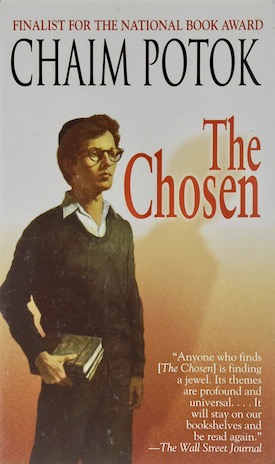


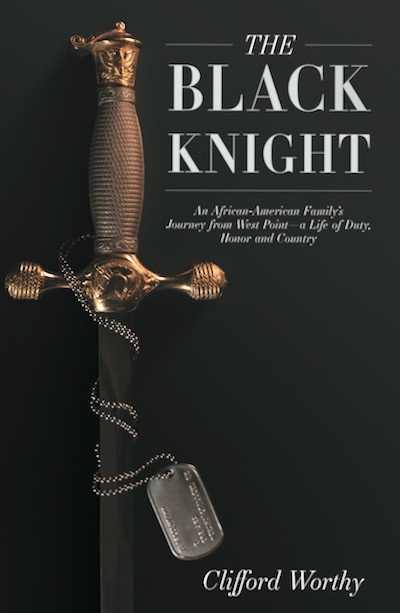
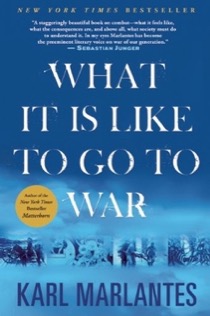

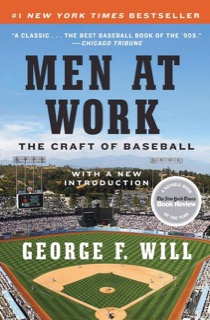
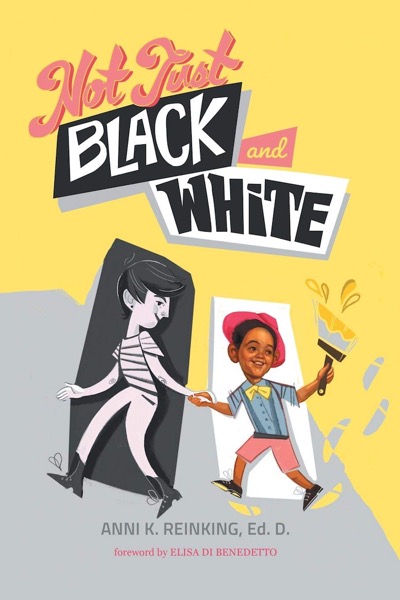
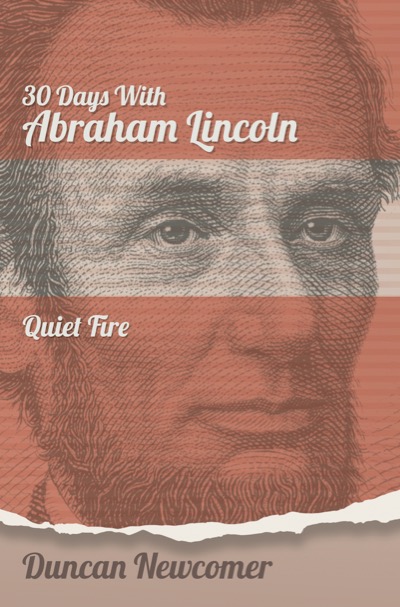

I like the invitation.
Here is a ‘meme’ which I have distilled from reading and living which keeps me balanced.
“Life is hard AND life is good.”
“We need to remember that Hope is an attitude different from our hopes. When all our hopes are shattered, Hope remains as radical openness for surprise. It is that Hope I wish you.” Br. David Steindl-Rast
I have long collected quotes and will change my email tag line to reflect current life thoughts. I enJOY emails that deliver fruit for thought via quotes or adages or scriptural verses. Much like a a daily habit to receive and then ponder. The above quote was on twitter just today from Diana Butler Bass. They deliver hope and anchor us to who we are and who we are to become.
My fridge too is covered in quotes from MLK and Micah and others …
“Stagger onward rejoicing!” W. H. Auden
Wonderful and thought provoking column. Thanks, David.
Here’s one I have taped to the shelf by my desk:
“There is nothing in a caterpillar that tells you it’s going to be a butterfly.”
Buckminster Fuller, Beyond the Known Territory